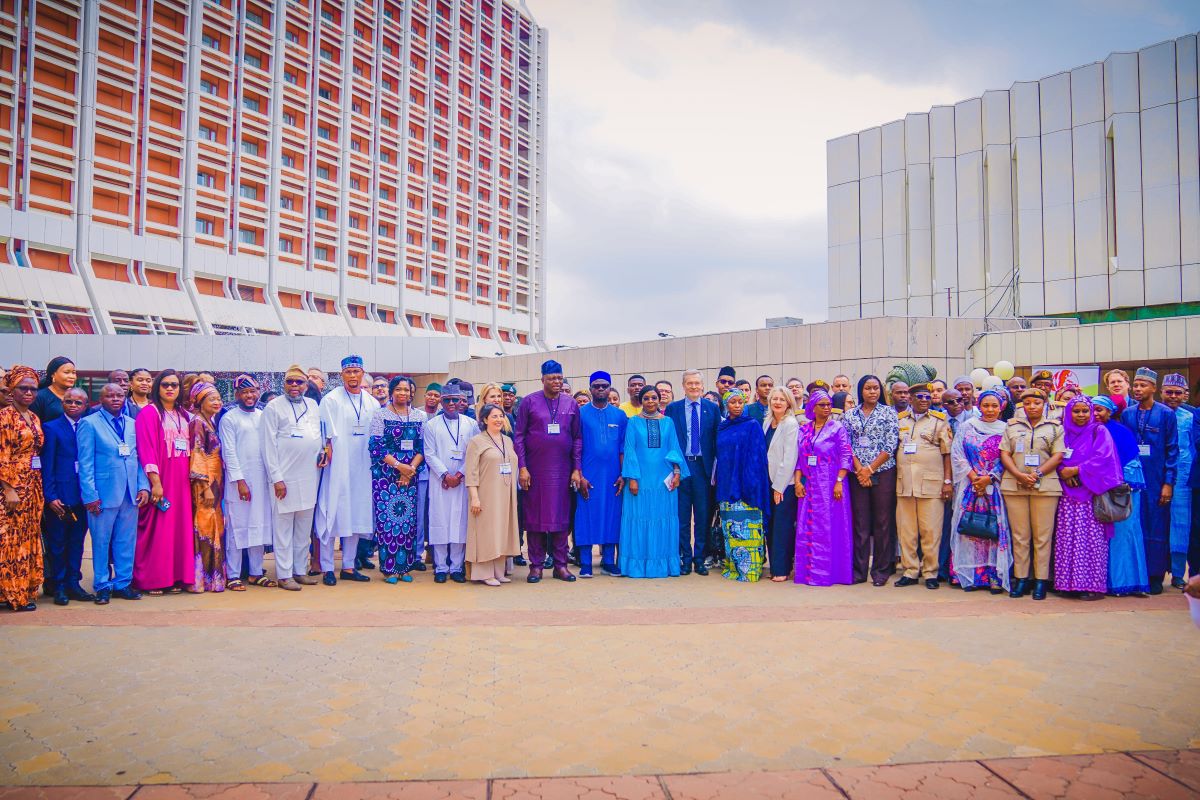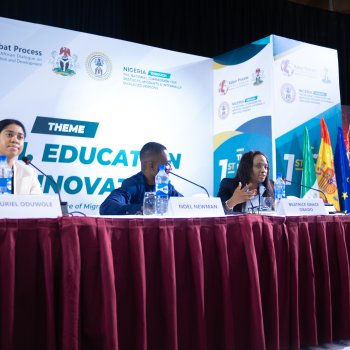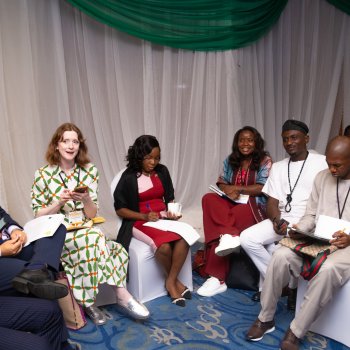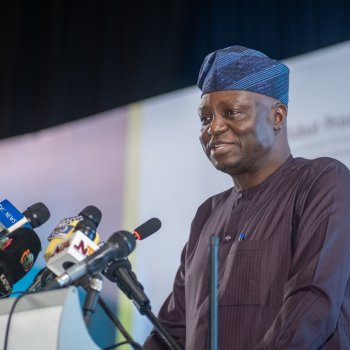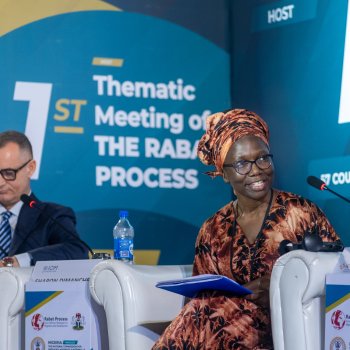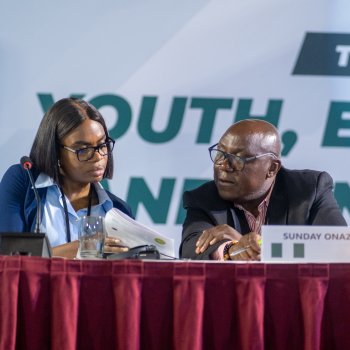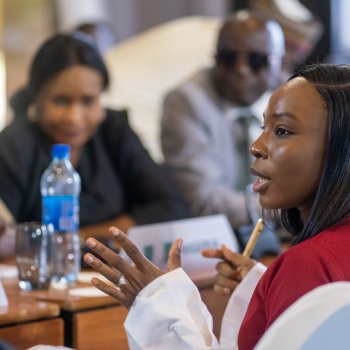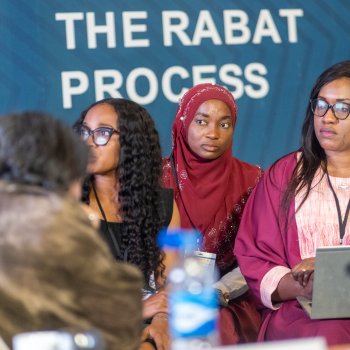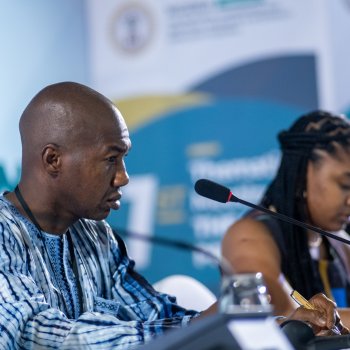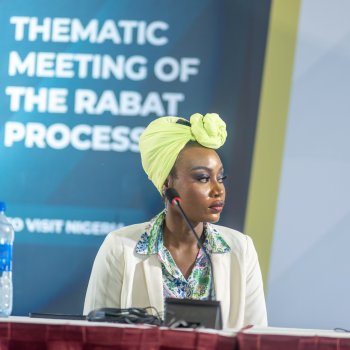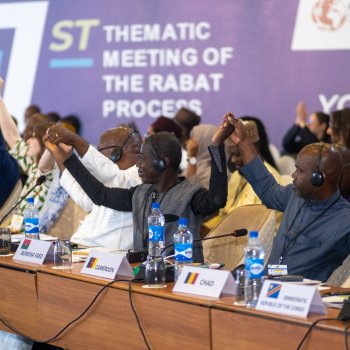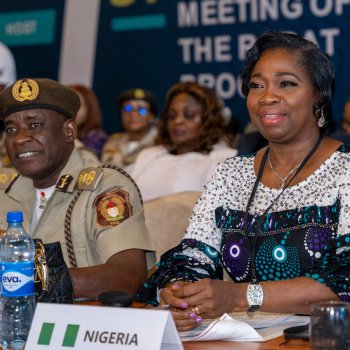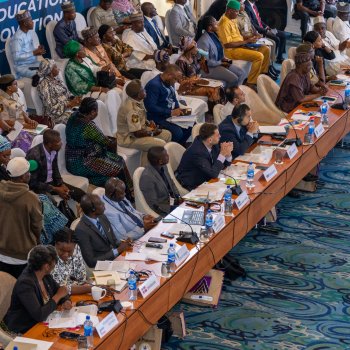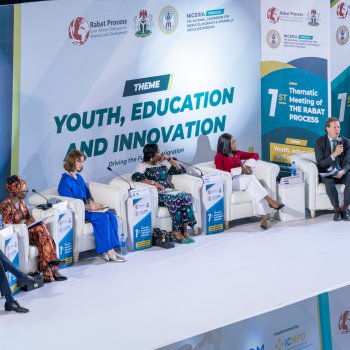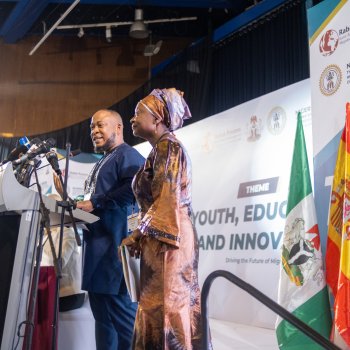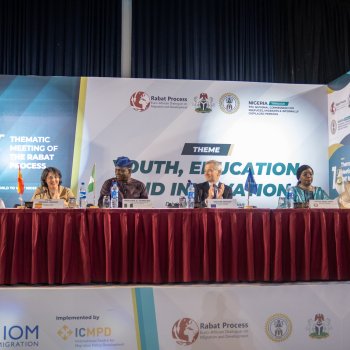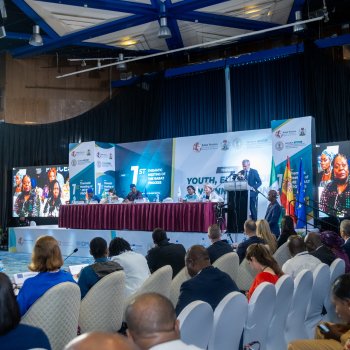As African youth become a vital force for progress, innovation, and sustainable development; the Rabat Process stands at the forefront of this strategic migration dialogue. On 13-14 May 2025, Nigeria and Spain co-chaired in Abuja a meeting on Youth, Education, and Innovation: Driving the Future of Migration.
Over 120 participants from 38 African and European partner countries including youth, government delegates, diaspora representatives, civil society, academia, and the private sector all highlighted that young people are not only stakeholders in migration policy – but vital architects of its future.
Youth voices at the heart of the agenda
The Thematic Meeting is the first under Nigeria’s Chairmanship of the Dialogue, and follows the 2023 discussions in The Hague. Anchored in Area 1 of the Cadiz Action Plan, the event reaffirmed the urgent need to empower African youth starting today. A convergence of generations, geographies, and goals centred around a shared conviction, it calls for strengthened cooperation and investment in education, innovation, and in highlighting the voices of young people themselves.
The importance of translating dialogue into action was powerfully underscored by Nigeria’s Honourable Minister of Humanitarian Affairs and Poverty Reduction, H.E. Prof Nentawe Yilwatda: “Let us move from conversation to coordination, and from policy to practice. Migration, at its best, is not about the barriers we fear, it is about the bridges we build together.”
Echoing this vision, Monica Zanette, Head of the ICMPD Pan Africa Region highlighted the potential for partnership: “The unique demographic complementarity between Africa and Europe offers a strategic moment to harness the potential of youth as strategic agents of positive change across partners countries of the Rabat Process.”
Across the sessions, speakers underscored the importance of inclusive policies, digital skills, and education for youth empowerment. Showcasing a range of initiatives, from technology-driven diaspora initiatives to youth-led entrepreneurship and cultural diplomacy efforts, the message was clear: young people must not only be included in policy; they must also co-create it.
A session on Skills Without Borders highlighted practical approaches to legal migration. It showcased how Rabat Process partner countries are equipping youth through skills certification, bilateral labour migration agreements, and robust diaspora engagement to create safe and sustainable migration pathways.
32 recommendations
Central to the meeting were two youth-centred breakout discussions that resulted in 32 concrete recommendations. See the outcome document.
- Beyond remittances’: engaging young diaspora for development
Participants explored how the young African diaspora has evolved as strategic development partners, with their roles extending beyond sending money home. Now they contribute to filling labour gaps, transferring skills, forging international partnerships, and supporting education, climate action, governance, and technology. They called for developing policies with diaspora youth, not just for them.
Recommendations call for a comprehensive, youth-centred approach to migration and development that includes accessible information services, tailored skills programmes, diaspora engagement, inclusive policymaking, simplified investment processes, entrepreneurship training, leadership opportunities, and strengthened coordination between government and youth stakeholders.
- Youth and governance: mainstreaming youth perspectives into decision-making processes
Integrating youth perspectives in policymaking would ensure migration policies reflect their realities. This group featured examples from Liberia’s National Youth Advisory Council and Nigeria’s Youth Sounding Board, demonstrating how structured youth input can shape national strategies across sectors, from health to migration.
Recommendations call for the institutionalisation of youth participation through national councils, education reform, mentorship, accessible funding, community engagement, and digital platforms – ensuring that young people are meaningfully involved at every stage of migration governance and development processes, from local to international levels.
A shared vision
Across the discussions, partner countries also committed to engage youth more systematically and sustainably within the Rabat Process.
Spain, co-chairing the meeting, praised the Rabat Process as “more useful, necessary, and alive than ever, thanks to the active engagement of youth,” and called for a shift from youth inclusion to active collaboration, where young people are co-creators of migration policy and partnerships.
In its closing remarks, Nigeria, as the meeting host, described the event as a vibrant convergence of ideas, commitment, and a shared vision for a future where migration between Africa and Europe is safe, regular, dignified and voluntary. It called for stronger partnerships to invest in job innovation hubs and mobility programmes – particularly in fragile or climate-affected areas; as well as for greater private sector involvement to support education and skills-based initiatives; and for a collective belief in the potential of youth as partners.
Photos
